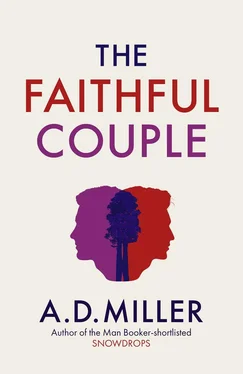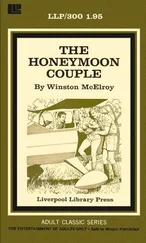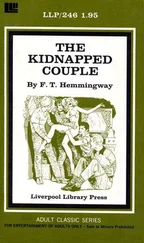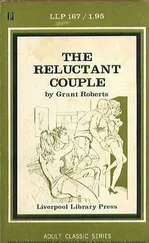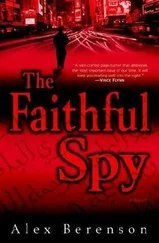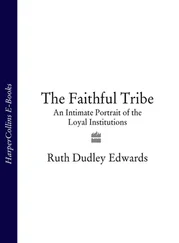The best analogy Neil could offer himself was with how he felt in that motel room in Los Angeles twelve years before. I am Neil Collins from Harrow, Neil Collins of Collins & Sons. What the fuck am I doing here?
To be honest, he knew the answer, which was as straightforward now as it had been in California. There the answer was Adam. In Baku, it was Farid.
Farid had given him a temporary, functional entrée to the plutocracy. Its members, Neil had noticed, observed their own rituals and rules, in traffic jams, at airports, in all their dealings with officialdom. There was a kind of telepathy between them, a family resemblance in manner and sheen that seemed always to be mutually visible beneath the local idiosyncrasies. They were charming sociopaths, for the most part, enraptured by their wealth but able to be ironic about it, to see the joke and the luck of it. Young women were usually in tow and frequently on offer, like digestifs , though Farid had warned Neil, right at the beginning, always to decline, lest he end up featuring in some blackmailable amateur pornography. Don’t shit on your own doorstep.
Farid was supplying half the funds for a gaudy, multi-purpose tower on the site of a soon-to-be flattened, Soviet-era housing estate. ‘Give them nothing,’ he had urged as he left the Hilton that morning, condemning Neil to endure their new partners’ hospitality alone. By which he had meant, nothing personal, nothing they could use against him later. Farid himself had given Neil nothing all along: those photos of somebody’s grandchildren he had glimpsed at their first meeting, with Bimal and Jess in the rented flat near Marble Arch, were as close an approach as Neil ever made to him. Neil felt indebted to Farid, filial almost, but also, sometimes, ashamed.
The beer arrived. Azim became garrulous. Was Blair as strong as Thatcher? Something about a local and much-lamented war that Neil had never heard of. Elin broke in with the personal questions. Did Neil have children? Was he married?
Elin was married. From his inside pocket he produced a laminated, folding set of pictures, a boy and two girls at what might have been Disney World. A pretty woman in lipstick and Western clothes. He watched Neil looking at them. ‘My wife,’ he said, and smiled. ‘My children.’ Always the children.
Neil gave them nothing. Not yet. Maybe one day. We’ll see.
‘Next time you come,’ Azim said, putting on the full oriental show, ‘you stay in my house. We kill a sheep. You meet my daughter.’ Elin said something to Azim and they both laughed.
Neil wasn’t sure what the joke was, whether it was on him. ‘That would be wonderful,’ he ventured.
‘Not for the sheep,’ Elin said, and they laughed again.
Insincerity wasn’t quite the word for these exchanges. They were both false and true at the same time, authentic human contact shot through with cynicism. The blandishments were almost genuine at the moment they were uttered, Neil felt. The same as business everywhere, only more exuberant — the same as life everywhere, come to that, intimacy mixed with exploitation, the mission always to insulate something, some moment or bond, from the contest.
Azim and Elin lapsed into Azeri. Neil had begun wondering whether it would be impolite to look at his phone when, as if obediently, it rang. A twin fire-station shriek, the old rotary theme that was already kitsch history.
For the first two rings he ignored it, smiling inanely as if the noise were emanating from somewhere else. It was unlikely to be Jess: she was in Buenos Aires, seven hours behind him, research for a new Latin American biscuit product, he thought she had said. It might be Sam. Neil had given him a phone for his birthday, with instructions to call should Brian deteriorate, or should Dan. Sam texted him emoticon-studded jokes, mordant synopses of Dan’s proliferating benders, occasionally his homework scores; Neil amplified his responses with lavish exclamation marks, as the mobile argot required.
After three rings he took out the phone and looked at the screen. The caller-ID photo told him it was Adam. Handsome bugger.
Azim coughed, then grinned.
Neil’s rancour over California had passed, rinsing out of him during the thunderstorm the previous summer, the two of them and those two women. This evening he felt the old warmth — because Adam was in the world, still in Neil’s world, in spite of everything, comfortingly persistent — and a more recent, entwined irritation. Of late there often seemed to be something more pressing to do when Adam rang: it wasn’t the right time, Neil would call his friend back later, he usually resolved, definitely he would.
‘You may answer,’ Elin said. ‘Please.’
On the sixth ring Neil cupped the screen beneath the table. Pressing the reject button would be too brutal: Neil himself could tell when someone offed him like that, and he always received it as a tiny act of violence. He generally let Adam ring through to voicemail, the lazy medium between the investment of talking and harshness of termination.
Not today. Neil raised and jiggled the phone in his hand, mouthing ‘sorry’ as he stood. ‘Yes,’ he said, in a curt tone intended to sound executive. Not just the organ-grinder’s monkey.
‘I’ve found her,’ Adam said.
‘Excuse me,’ Neil said to his hosts, putting his hand over the mouthpiece as you were supposed to. ‘I have to take this.’
‘Of course,’ Azim said.
‘No problem,’ Elin said.
‘Just a second,’ Neil said to Adam.
He strode into the courtyard but found it crowded with diners, waiters, a half-hearted belly-dancer. He hurried out of the restaurant, bearing the phone like a fizzing hand grenade, and down the steps that led to the seafront. He ignored the carpet salesmen (‘Is not shop, is museum!’), crossed the road and found himself on the almost deserted boardwalk that stretched along the shore of the Caspian. No waves, just dead black water.
‘Hi, Adam,’ he said, rewinding, giving his friend a chance to begin again. To begin differently.
‘Philly, I’ve found her.’
‘Who?’ Neil asked, although he already knew. A nauseating aroma of oil wafted off the sea. In the distance, beyond the boardwalk and the trees, he made out the silhouette of an offshore platform, a lone orange beacon flashing at its apex in the Caucasian night.
‘Rose, of course. I’ve found her, Neil. I’ve found Rose.’
Panic surged up Neil’s throat. Here they came — the shame, the recrimination, the policemen whom Eric was going to call but, for some blessed reason, hadn’t. He fought it down.
‘What are you talking about?’
‘I said I’ve —’
‘Where?’
‘The internet,’ Adam said. ‘MySpace. I registered and I searched for her and now I’ve found her. She’s… hair… at least…’
The signal cracked up; Neil caught one word in three. He walked up the boardwalk, towards the oil platform. Adam was still there, patchy and scrambled but still with him. Neil raised the handset above his head and waved it in the warm air, hoping to reignite the signal-strength bars in the corner of the miniature screen. Around thirty metres ahead of him, beneath a tree that canopied the boardwalk, another man was brandishing his phone in the air, conjuring the same ethereal magic. To anyone watching it would have looked as if they were semaphoring each other in a strange, short-range code.
Neil turned away from the man and walked back along the boardwalk, towards the restaurant. He regained his signal.
‘You still there?’
‘Yes,’ Adam said. ‘Yes, I’m here. Just lost each other for a second.’
‘What time is it there? Aren’t you at work?’ — as if he might disqualify his friend’s intelligence on a technicality.
Читать дальше
